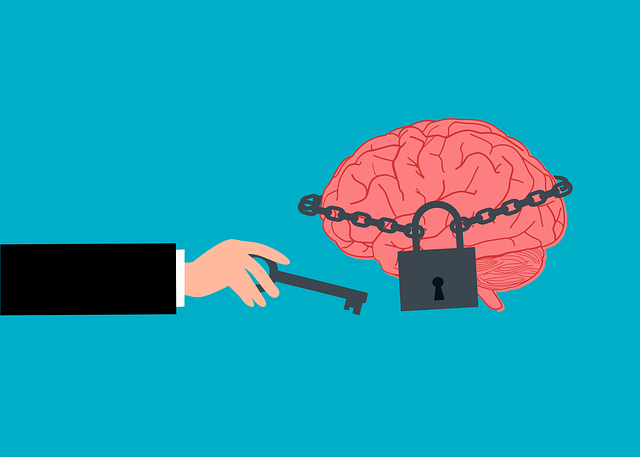Lafayette Bilingual Therapy offers comprehensive crisis intervention services, focusing on swift, compassionate support for individual distress. They employ tailored strategies addressing a range of issues, from trauma to stress management. Through empathy-building and Mind Over Matter principles, they equip clients with coping mechanisms and resilience tools. Early detection, regular check-ins, and open communication normalize help-seeking behaviors. Using evidence-based techniques like CBT and mindfulness, therapists guide individuals through crises and promote long-term emotional well-being. Post-crisis care emphasizes self-care practices, resource access, and community outreach to foster recovery and resilience.
At Lafayette Bilingual Therapy, crisis intervention strategies are a cornerstone of our mental health support services. This comprehensive guide explores essential aspects of managing crises effectively, from understanding the foundational principles to identifying subtle signs and triggers. We delve into creating safe spaces, implementing evidence-based techniques like cognitive behavioral therapies and mindfulness practices, and providing post-crisis care to foster resilience and long-term wellbeing. Discover how Lafayette Bilingual Therapy navigates the intricate landscape of crisis intervention.
- Understanding Crisis Intervention: A Cornerstone of Mental Health Support at Lafayette Bilingual Therapy
- Identifying Signs and Triggers: Early Detection for Effective Interventions
- Creating a Safe Space: Establishing Trust and Communication Strategies
- Evidence-Based Techniques: From Cognitive Behavioral Therapies to Mindfulness Practices
- Post-Crisis Care and Prevention: Fostering Resilience and Long-Term Wellbeing
Understanding Crisis Intervention: A Cornerstone of Mental Health Support at Lafayette Bilingual Therapy

At Lafayette Bilingual Therapy, we recognize that crisis intervention is a cornerstone of effective mental health support. Our team understands the importance of swift and compassionate response to individuals in distress, aiming to stabilize emotions, assess needs, and connect clients with appropriate resources. Crisis intervention strategies at Lafayette Bilingual Therapy are tailored to address a wide range of issues, from sudden traumatic events to ongoing stress management challenges.
We employ empathy building strategies as a foundational approach, fostering an environment where individuals feel heard and understood. By incorporating Mind Over Matter principles in our sessions, we empower clients with coping mechanisms and resilience-building tools. Furthermore, Lafayette Bilingual Therapy organizes Stress Management Workshops to provide practical techniques for managing anxiety and stress proactively. Our comprehensive guidance ensures that individuals not only navigate crises but also develop long-term strategies for emotional well-being.
Identifying Signs and Triggers: Early Detection for Effective Interventions

Early detection is a cornerstone of effective crisis intervention. At Lafayette Bilingual Therapy, we understand that recognizing signs and triggers can be subtle, especially when dealing with mental health crises. By educating ourselves and those around us to identify warning signals, such as sudden changes in behavior, increased anxiety levels, or persistent negativity, we can play a vital role in preventing escalation. This proactive approach allows for timely interventions, ensuring individuals receive the support they need before reaching a critical point.
Implementing strategies like regular check-ins and open communication channels fosters an environment where seeking help is normalized. Encouraging positive thinking and emotional well-being promotion techniques can also act as protective factors against crises. By integrating these practices into our daily routines, we contribute to burnout prevention, empowering individuals to navigate challenging situations with resilience and adaptability.
Creating a Safe Space: Establishing Trust and Communication Strategies

Creating a safe and supportive environment is a cornerstone of effective crisis intervention. At Lafayette Bilingual Therapy, we emphasize the power of establishing trust as a foundational step. When individuals face crises, they often need a sanctuary where they can express their feelings openly without fear of judgment or repercussions. This trust-building process involves active listening, empathy, and ensuring confidentiality to foster a sense of security.
Effective communication strategies are equally vital. Therapists at Lafayette Bilingual Therapy employ techniques that encourage clients to share their experiences and emotions. This might include guiding them through emotional well-being promotion techniques like journaling exercises that help in reflecting on their thoughts and feelings. By combining these approaches, we aim to enhance self-esteem improvement and support mental wellness, providing individuals with the tools they need to navigate challenging situations successfully.
Evidence-Based Techniques: From Cognitive Behavioral Therapies to Mindfulness Practices

In the realm of crisis intervention, evidence-based techniques play a pivotal role in effectively guiding individuals through tumultuous times. Cognitive Behavioral Therapies (CBT), for instance, have proven to be powerful tools in helping people identify and change negative thought patterns and behaviors, fostering a more positive mindset. These therapies encourage active participation, empowering clients to develop coping skills that can prevent future crises.
Additionally, mindfulness practices, often championed by organizations like Lafayette Bilingual Therapy, are gaining recognition for their ability to enhance self-awareness and emotional regulation. By focusing on the present moment without judgment, individuals can learn to manage stress, anxiety, and even depression. Self-awareness exercises, as part of a comprehensive approach, contribute to a holistic understanding of one’s mental health, enabling better risk assessment for mental health professionals. This, in turn, allows for tailored interventions that address the unique needs of each individual in crisis.
Post-Crisis Care and Prevention: Fostering Resilience and Long-Term Wellbeing

After an initial crisis intervention, focusing on post-crisis care and prevention is crucial for fostering resilience and long-term wellbeing. Lafayette Bilingual Therapy recognizes that individuals and communities require ongoing support to recover and thrive following a traumatic event. This involves implementing effective self-care practices tailored to individual needs, ensuring access to mental health resources, and promoting social connections. By integrating these strategies into their post-crisis care plans, individuals can build coping mechanisms, enhance their ability to navigate future challenges, and cultivate a sense of agency in their recovery process.
Community outreach program implementation plays a pivotal role in this phase. Lafayette Bilingual Therapy advocates for initiatives that encourage community engagement, enhance support systems, and raise awareness about stress reduction methods. These programs aim to create safe spaces where individuals can share experiences, learn from one another, and access targeted interventions. Through such collaborative efforts, communities can develop sustainable strategies to prevent future crises and promote overall mental health and resilience among their members.
Crisis intervention is a vital aspect of mental health support, as exemplified by Lafayette Bilingual Therapy’s comprehensive approach. By understanding crisis triggers, creating safe spaces, and employing evidence-based techniques like cognitive behavioral therapies and mindfulness practices, professionals can effectively navigate these challenging situations. Post-crisis care and prevention strategies, focused on fostering resilience, play a crucial role in promoting long-term wellbeing, as highlighted by Lafayette Bilingual Therapy’s expert guidance.














